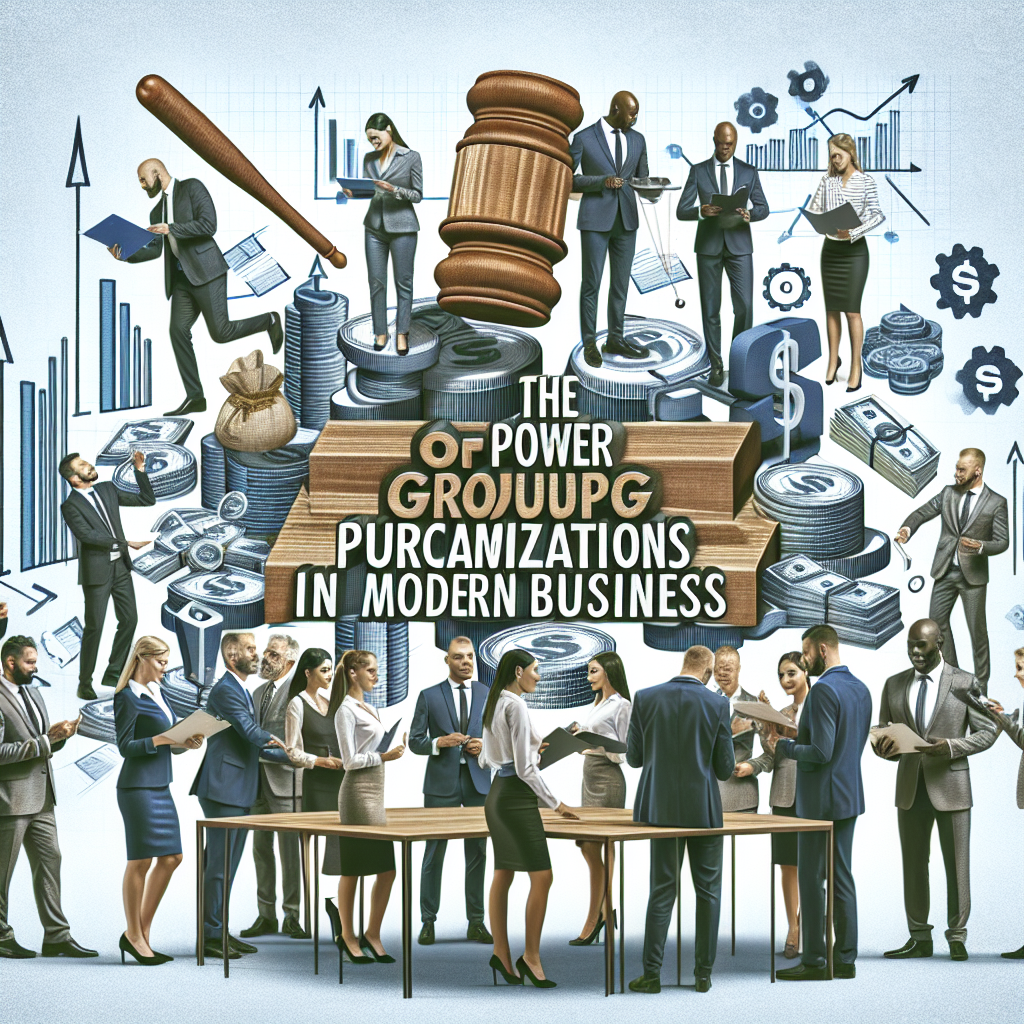Introduction
Hospitality Group Purchasing Organizations (GPOs) are entities that help hotels, restaurants, and other businesses in the hospitality sector streamline their procurement processes. They leverage collective buying power to negotiate favorable pricing and terms with suppliers.
Maximizing savings is crucial in the hospitality industry, where profit margins can be thin. GPOs facilitate cost reductions by:
- Negotiating discounted rates on essential products and services
- Providing access to pre-negotiated contracts, allowing businesses to avoid lengthy procurement cycles
- Offering valuable insights into market trends and purchasing benchmarks
By utilizing GPOs, hospitality businesses can enhance their operational efficiency while significantly reducing costs. The result is a more sustainable approach to procurement that supports long-term profitability.
Moreover, these organizations can also assist in maximizing federal grant funding for nonprofits, which could be beneficial for non-profit establishments within the hospitality sector. Additionally, they can play a role in boosting employee morale with break room supplies, a small yet significant aspect of maintaining a happy workforce.
In the healthcare segment of the hospitality industry, GPOs can help in sourcing essential PPE for airborne precautions, ensuring safety while maintaining operational efficiency. Furthermore, it’s important for these organizations to focus on maximizing supplier performance, ensuring quality and reliability in the products and services procured.
Understanding Hospitality Group Purchasing Organizations (GPOs)
Hospitality Group Purchasing Organizations (GPOs) play a vital role in streamlining procurement processes within the hospitality industry. By leveraging collective buying power, GPOs enable hotels and restaurants to access a broader range of products and services at significantly reduced costs.
Key Functions of GPOs
1. Collective Buying Power
GPOs aggregate purchasing needs from multiple clients, creating a larger volume that attracts better deals from suppliers. This collaboration leads to substantial savings that individual establishments might struggle to achieve on their own. It’s important to note that there are some myths about purchasing that can mislead businesses when considering joining a GPO.
2. Supplier Negotiation
GPOs excel in negotiating favorable pricing and terms with suppliers. They have established relationships and deeper insights into market trends, allowing them to secure competitive rates for their members. This is especially relevant in light of the top trends in supplier innovation which can further enhance the value provided by GPOs.
3. Cost Reduction Strategies
With access to pre-negotiated contracts, businesses can avoid the lengthy and often complex negotiation process. This not only saves time but also ensures that members benefit from consistent pricing structures, which is crucial for budgeting. To better understand this process, it’s essential to communicate procurement’s value effectively.
By utilizing these resources, hospitality businesses position themselves for enhanced profitability while maintaining quality standards. The strategic partnership between GPOs and their members fosters an environment where operational efficiency is prioritized alongside cost-effectiveness. This synergy ultimately empowers hospitality providers to focus more on guest satisfaction rather than procurement challenges.
For those interested in exploring how such partnerships can be beneficial, don’t hesitate to get in touch with us.
Key Advantages of Using GPOs in the Hospitality Sector
Utilizing Hospitality Group Purchasing Organizations (GPOs) can lead to significant benefits for businesses in the sector. Here are some key advantages:
1. Cost Savings
GPOs leverage collective purchasing power, allowing hotels and restaurants to obtain discounted rates on a wide range of products and services. This reduction in costs directly impacts the bottom line, enabling businesses to allocate resources more efficiently.
2. Streamlined Procurement Processes
GPOs provide centralized platforms that simplify procurement. By consolidating purchasing activities, businesses can reduce administrative burdens and minimize the time spent on sourcing and negotiating with suppliers. This is particularly beneficial when managing tail spend, which often involves numerous low-value purchases that can be time-consuming to manage.
3. Access to Pre-Negotiated Pricing
With GPOs, you gain access to pre-negotiated pricing structures that ensure predictable expense management. This predictability helps in budgeting and financial planning, reducing surprises when it comes to operational costs.
4. Value-Added Services
Beyond basic procurement, many GPOs offer additional services that enhance operational efficiency. For instance, benchmarking data allows businesses to compare their purchasing trends against industry standards, identifying areas for improvement. Access to industry insights can inform strategic decisions and keep your business competitive.
Additionally, GPOs can facilitate better supplier relationship management, which is crucial for maintaining quality and reliability in supply chains. They also provide valuable insights into strategic sourcing vs category management, helping businesses make informed decisions about their procurement strategies.
Incorporating these advantages not only creates immediate financial benefits but also positions your establishment for long-term success in a highly competitive hospitality landscape. It’s important to remember that procurement is not just about buying goods and services; it’s a strategic function that requires careful planning and execution. For those considering a career in this field, exploring entry-level procurement jobs could be a great starting point.
Moreover, understanding how to build resilience in procurement during tough times is essential. GPOs can play a significant role in building resilience for tough times by providing stability in supply chains and ensuring continuity of operations even during crises.
Case Studies of Successful GPOs in the Hospitality Industry
Avendra, recognized as the largest hotel procurement company in North America, exemplifies the effectiveness of Group Purchasing Organizations (GPOs) in driving savings for hospitality businesses. With its extensive network and strong relationships with suppliers, Avendra enables hotels to access competitive pricing on a wide range of products and services. Their tailored solutions allow member hotels to reduce costs while maintaining high-quality standards.
The Buyers Edge Platform specializes in enhancing restaurant profitability through collective purchasing strategies. Many restaurants have reported remarkable outcomes by utilizing this platform, including:
- A regional chain reduced food costs by 12% annually after leveraging the negotiated pricing available through Buyers Edge.
- A single-location restaurant experienced a savings of $5,000 per year on kitchen supplies, thanks to bulk purchasing agreements facilitated by the platform.
Specific examples of cost savings highlight the tangible benefits GPOs offer:
- One hotel chain saved over $1 million in its first year by consolidating orders through Avendra.
- A restaurant reported saving up to 20% on beverage purchases using pricing models set by Buyers Edge.
Through these case studies, it is clear that effective utilization of GPOs significantly contributes to maximizing savings within the hospitality sector. The ongoing success stories serve as testimonials to the value these organizations bring to their members, enabling them to thrive in a competitive landscape.
However, it’s not just about leveraging networks and relationships; mastering procurement through continuous learning and adaptation is equally crucial. This is illustrated in Frank Corris’s transformative journey which emphasizes strategic thinking as a key driver for procurement success.
Furthermore, implementing procurement optimization strategies can lead to significant cost efficiency. For instance, one-person procurement functions can still yield substantial results with the right management techniques, as suggested in these tips for managing a one-person procurement function.
In addition to these insights, there are also lessons to be learned from the art of frugal living, which could offer valuable strategies for maximizing cost savings not only in business but also in daily life.
Strategies for Maximizing Savings with GPOs
Maximizing savings through Group Purchasing Organizations (GPOs) requires strategic approaches that leverage available resources. Here are essential strategies for immediate cost reduction:
1. Utilize GPO Resources
Engage with your GPO to identify specific programs or services designed for expense optimization. Many GPOs offer tools and analytics to track spending patterns, helping you pinpoint areas where costs can be trimmed.
2. Take Advantage of Bulk Buying Power
By collaborating with other members within the GPO, you can access significant discounts on bulk purchases. This collective purchasing power not only reduces the price per unit, but also enhances negotiation leverage with suppliers.
3. Explore Competitive Rates
GPOs frequently negotiate pre-established agreements with various suppliers, ensuring you benefit from competitive pricing without the hassle of individual negotiations. Always review these agreements and select options that align best with your operational needs.
4. Implement Cost Control Measures
Use the benchmarking data provided by your GPO to compare your expenses against industry standards. This practice promotes informed decision-making regarding procurement and identifies potential savings opportunities.
5. Unlock Exclusive Membership Benefits
Don’t forget to unlock exclusive membership benefits offered by your GPO. These benefits can include access to special deals, additional resources, or exclusive services that can further enhance your savings.
By employing these strategies, hospitality businesses can effectively lower costs while enhancing overall operational efficiency. If you’re facing challenges in implementing these strategies due to limited resources, consider following these 10 essential tips which provide insights on optimizing processes and leveraging networks for business success.
Implementation Process for Joining a GPO
Joining a Group Purchasing Organization (GPO) involves a straightforward process that can lead to significant savings and efficiencies. Here are the key steps for hospitality businesses:
-
Research GPO Options
Evaluate various GPOs based on their offerings, industry focus, and reputation. Look for organizations that align with your specific needs. -
Contact the GPO
Reach out to potential GPOs to inquire about membership procedures, costs, and benefits. This initial contact is crucial for understanding the value they provide. -
Submit Required Documentation
Complete necessary paperwork, which may include proof of business registration and financial disclosures. Ensure all documents reflect your organization’s status accurately. -
Attend Orientation Sessions
Many GPOs offer orientation to familiarize new members with resources, tools, and platforms available. This step ensures you maximize the benefits from day one. -
Start Using GPO Resources
Begin purchasing products and services through the GPO’s platform to take advantage of negotiated pricing and streamlined processes.
Expert guidance during implementation plays a vital role in achieving seamless integration into a GPO. Experienced consultants can help navigate challenges, ensuring minimal disruption to your operations while adopting new procurement practices. This support is instrumental in fostering a smooth transition, allowing your business to focus on its core activities while reaping the rewards of group purchasing power.
Moreover, during this transition, it’s essential to maintain transparent communication with suppliers. Such communication not only builds trust but also drives business growth by ensuring that all parties are aligned in their expectations and objectives.
Best Practices for Working with GPOs
To maximize savings with Hospitality Group Purchasing Organizations (GPOs), implementing best practices is crucial. GPOs often provide educational materials that highlight effective strategies:
- Leverage Educational Resources: Utilize training sessions and webinars offered by GPOs. These resources cover indirect purchasing tips, helping you understand how to navigate the procurement landscape effectively.
- Establish Clear Goals: Define your objectives when working with a GPO. This clarity allows you to align your purchasing strategies with your business needs, ensuring optimal use of available resources.
- Regularly Review Contracts: Periodically assess the contracts and agreements established through your GPO. This practice ensures you are taking full advantage of discounts and benefits, adapting as market conditions change.
- Benchmark Against Trends: Compare your purchasing data against industry trends. Benchmarking enables continuous improvement, identifying areas where further savings can be achieved.
- Engage in Open Communication: Maintain an ongoing dialogue with GPO representatives. Feedback on pricing, products, and services fosters a collaborative relationship that can yield additional cost-saving opportunities.
By adhering to these practices, hospitality businesses can enhance their partnership with GPOs, driving significant cost reductions while optimizing procurement processes. To further revolutionize your procurement strategy, consider exploring the best procurement software and outsourcing companies. Additionally, if you’re contemplating a career in this field, it’s worth noting the predicted salary trends for procurement engineers in 2025, which could provide valuable insights into future job market conditions.
Conclusion
Using Group Purchasing Organizations (GPOs) is essential for maximizing savings in the hospitality sector. These organizations not only provide immediate cost reductions but also foster long-term financial health for your business.
Key points to consider:
- Sustainable Savings: GPOs help you leverage collective purchasing power, leading to discounts that can significantly reduce operational costs over time.
- Enhanced Efficiency: Streamlined procurement processes allow for better resource allocation, ultimately boosting profitability.
The benefits extend beyond immediate financial relief. By engaging with GPOs, you position your business to continuously adapt and thrive in a competitive landscape. This strategic partnership promotes ongoing savings, access to valuable industry insights, and improved negotiation terms with suppliers.
Embrace the advantages offered by GPOs to ensure your hospitality business remains resilient and financially sound for years to come.





